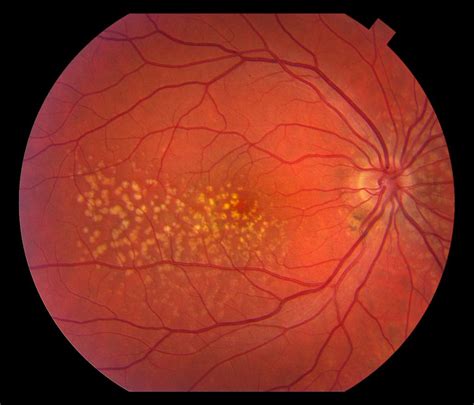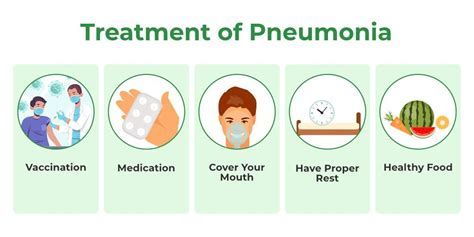Intro
Discover the causes, symptoms, and treatments of Macular Degeneration, a leading cause of vision loss, affecting retinal health and eye care, with insights on age-related macular degeneration and wet macular degeneration.
The world of ophthalmology has seen significant advancements in recent years, but despite these strides, certain conditions continue to pose significant challenges for patients and healthcare professionals alike. One such condition is macular degeneration, a leading cause of vision loss among people over the age of 50. As the global population ages, the prevalence of macular degeneration is expected to rise, making it essential to understand the causes, symptoms, and treatment options available for this condition. The importance of addressing macular degeneration cannot be overstated, as it has a profound impact on the quality of life of those affected, often leading to difficulties in performing daily tasks, maintaining independence, and engaging in social activities.
Macular degeneration is a complex condition that affects the macula, the part of the retina responsible for central vision, fine detail, and color perception. The macula is a small but crucial area at the back of the eye, and damage to it can lead to significant visual impairment. While the exact causes of macular degeneration are not yet fully understood, research suggests that a combination of genetic, environmental, and lifestyle factors contribute to its development. Age, family history, and smoking are known risk factors, but other factors such as diet, exposure to UV radiation, and certain medical conditions may also play a role. As our understanding of the condition evolves, it is becoming increasingly clear that early detection and intervention are critical in slowing disease progression and preserving vision.
The symptoms of macular degeneration can vary depending on the stage and type of the condition. In the early stages, patients may not notice any significant changes in their vision, but as the condition progresses, they may experience blurred vision, blind spots, and difficulty with tasks such as reading, driving, and recognizing faces. In some cases, patients may also notice distorted or wavy lines, and colors may appear less vivid. It is essential to seek medical attention if any of these symptoms are experienced, as prompt treatment can help to slow disease progression and prevent further vision loss. With the help of advanced diagnostic tools and techniques, ophthalmologists can now detect macular degeneration at an early stage, making it possible to initiate treatment and prevent significant vision loss.
Understanding Macular Degeneration

Types of Macular Degeneration
There are several types of macular degeneration, each with distinct characteristics and treatment options. The most common forms of the condition are: * Dry macular degeneration: This is the most common form of macular degeneration, accounting for approximately 80% of cases. It is characterized by the accumulation of waste material in the retina, which can lead to thinning and atrophy of the macula. * Wet macular degeneration: This is a more aggressive form of the condition, in which abnormal blood vessels grow under the retina, leading to leakage and scarring. * Stargardt disease: This is a rare form of macular degeneration that affects children and young adults, causing progressive vision loss. * Myopic macular degeneration: This is a type of macular degeneration that affects people with high levels of nearsightedness, causing stretching and thinning of the retina.Causes and Risk Factors

Genetic Factors
Genetic factors play a significant role in the development of macular degeneration, with certain genetic variants increasing the risk of the condition. Research has identified several genetic variants that are associated with an increased risk of macular degeneration, including: * Complement factor H (CFH) gene: Variants in the CFH gene have been associated with an increased risk of macular degeneration. * Age-related maculopathy susceptibility 2 (ARMS2) gene: Variants in the ARMS2 gene have been associated with an increased risk of macular degeneration. * Hepatic lipase (LIPC) gene: Variants in the LIPC gene have been associated with an increased risk of macular degeneration.Diagnosis and Treatment

Treatment for macular degeneration depends on the type and stage of the condition, but may include:
- Medications: Anti-vascular endothelial growth factor (anti-VEGF) medications, such as ranibizumab and bevacizumab, can help to reduce leakage and slow disease progression.
- Laser therapy: Laser therapy can help to reduce leakage and slow disease progression.
- Vitreoretinal surgery: In some cases, surgery may be necessary to remove blood and scar tissue from the retina.
Nutritional Therapy
Nutritional therapy can play a significant role in managing macular degeneration, with certain nutrients and supplements helping to reduce the risk of disease progression. Some of the key nutrients and supplements include: * Omega-3 fatty acids: These anti-inflammatory fatty acids can help to reduce the risk of macular degeneration. * Lutein and zeaxanthin: These antioxidants can help to protect the macula from damage. * Vitamin C and E: These antioxidants can help to reduce the risk of oxidative stress and inflammation. * Zinc: This mineral can help to support immune function and reduce the risk of inflammation.Living with Macular Degeneration

Coping with Vision Loss
Coping with vision loss can be emotionally challenging, but there are many resources and strategies available to help patients manage their emotions and maintain a positive outlook. Some of the key strategies include: * Mindfulness and meditation: These practices can help patients to reduce stress and anxiety and maintain a positive outlook. * Exercise and physical activity: Regular exercise and physical activity can help patients to maintain physical and emotional health. * Social support: Social support from family, friends, and support groups can help patients to cope with vision loss and maintain a positive outlook.Future Directions

Emerging Technologies
Emerging technologies, such as artificial intelligence and machine learning, are also being explored for their potential to improve macular degeneration diagnosis and treatment. Some of the key applications include: * Automated diagnosis: Automated diagnosis systems can help to improve the accuracy and speed of diagnosis. * Personalized medicine: Personalized medicine approaches can help to tailor treatment to the individual needs of each patient. * Telemedicine: Telemedicine can help to improve access to care and reduce the burden of treatment on patients and healthcare systems.Conclusion and Next Steps

We invite you to share your thoughts and experiences with macular degeneration in the comments below. Your feedback and insights can help to raise awareness and support for this important condition, and may also help to inform and inspire others who are affected by macular degeneration. Additionally, we encourage you to share this article with others who may be interested in learning more about macular degeneration, and to explore the many resources and support services available to patients and families affected by the condition.
What are the symptoms of macular degeneration?
+The symptoms of macular degeneration can vary depending on the stage and type of the condition, but may include blurred vision, blind spots, and difficulty with tasks such as reading, driving, and recognizing faces.
How is macular degeneration diagnosed?
+Diagnosing macular degeneration typically involves a comprehensive eye exam, including visual acuity test, dilated eye exam, optical coherence tomography (OCT), and fluorescein angiography.
What are the treatment options for macular degeneration?
+Treatment for macular degeneration depends on the type and stage of the condition, but may include medications, laser therapy, vitreoretinal surgery, and nutritional therapy.
Can macular degeneration be prevented?
+While there is currently no guaranteed way to prevent macular degeneration, there are several steps that can be taken to reduce the risk of developing the condition, including maintaining a healthy diet, not smoking, and protecting the eyes from UV radiation.
What is the prognosis for macular degeneration?
+The prognosis for macular degeneration varies depending on the type and stage of the condition, as well as the effectiveness of treatment. With prompt and effective treatment, it is possible to slow disease progression and preserve vision.
